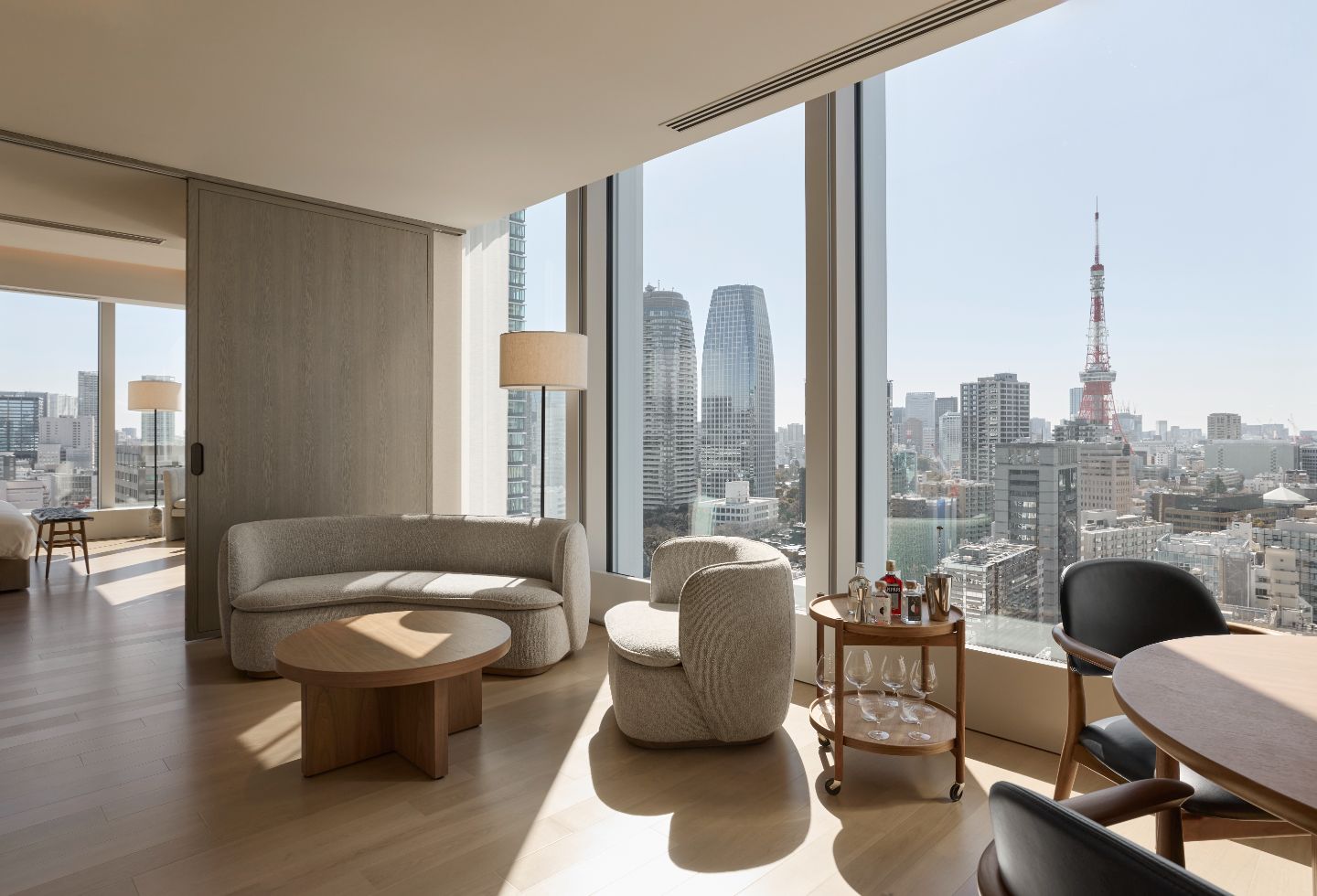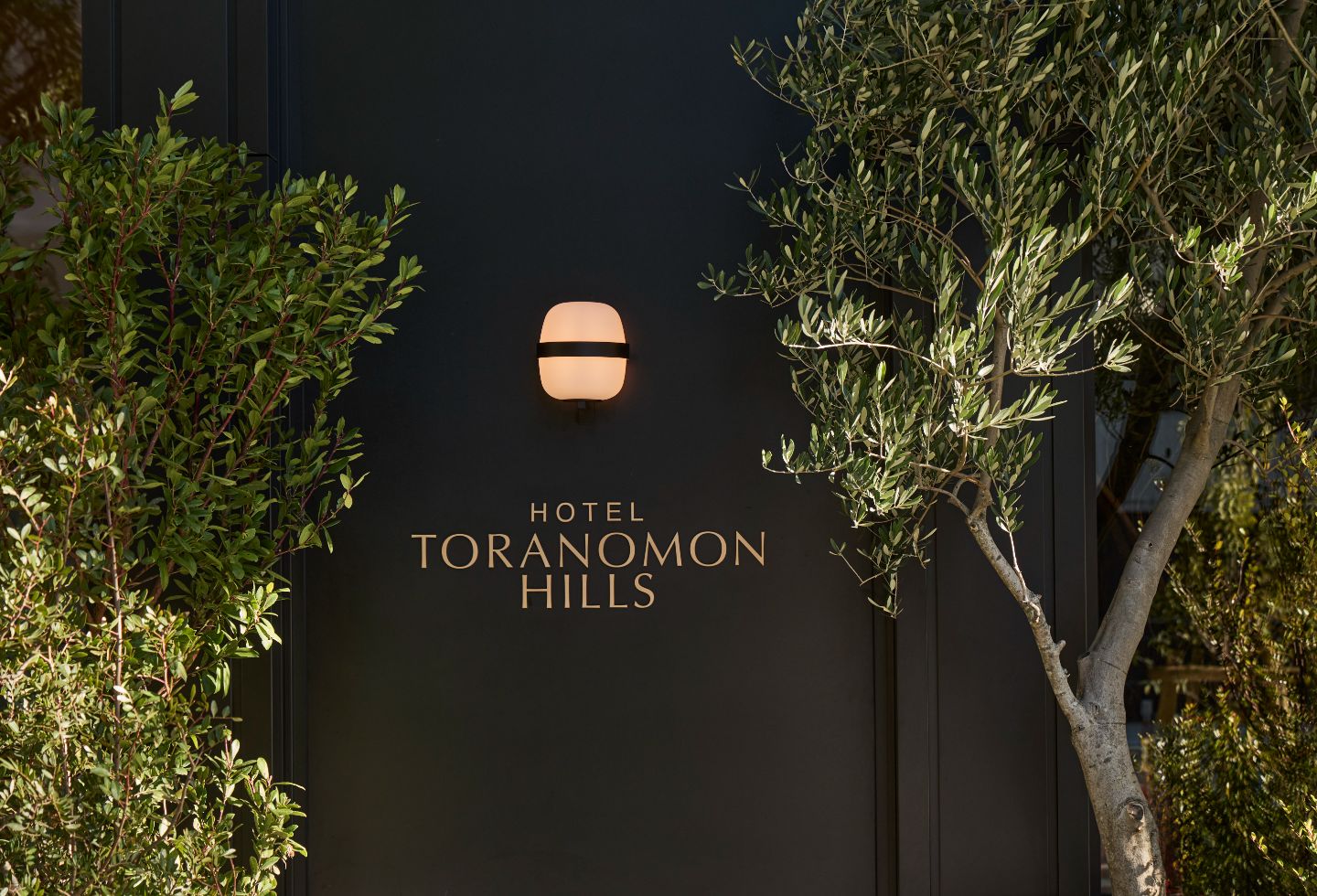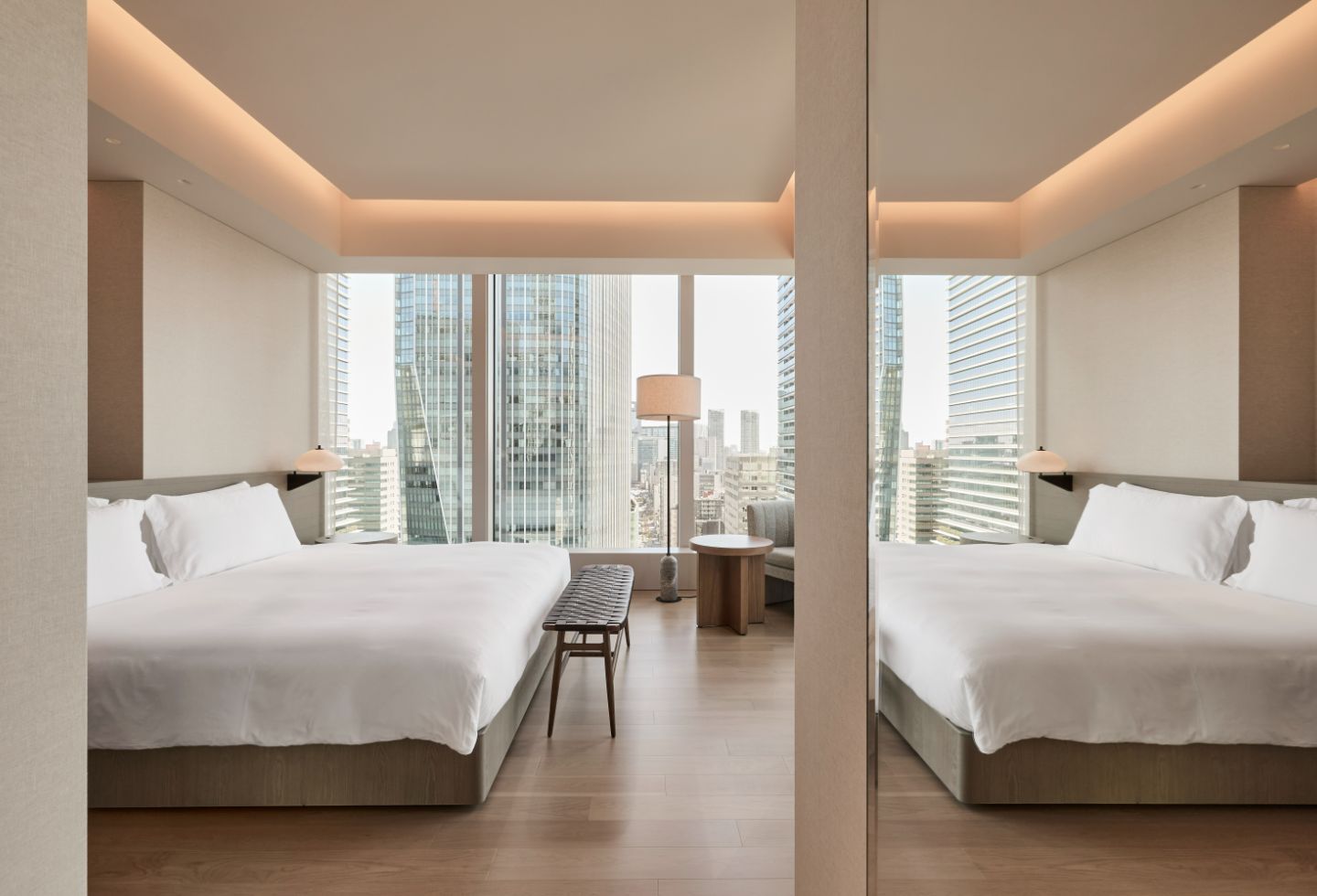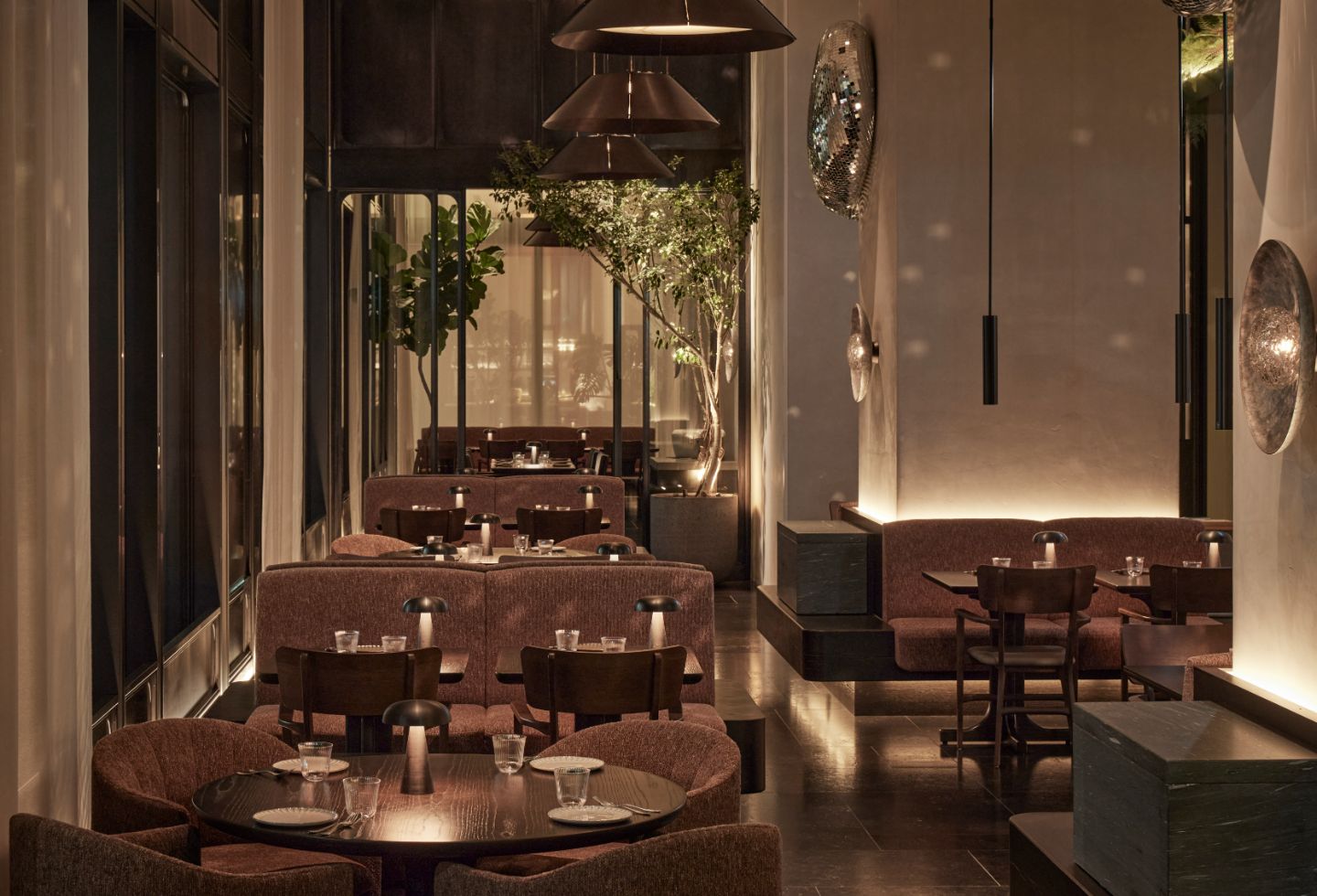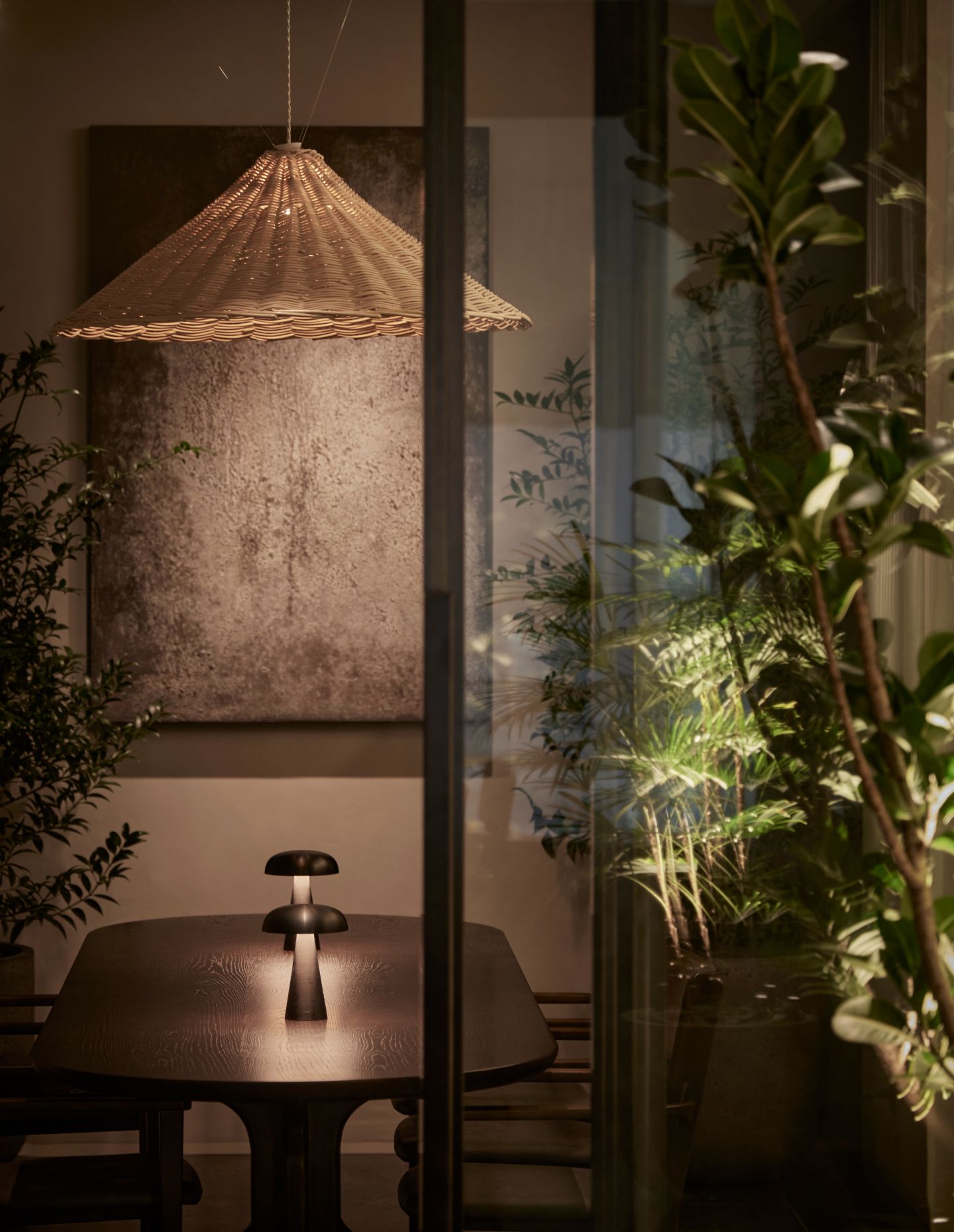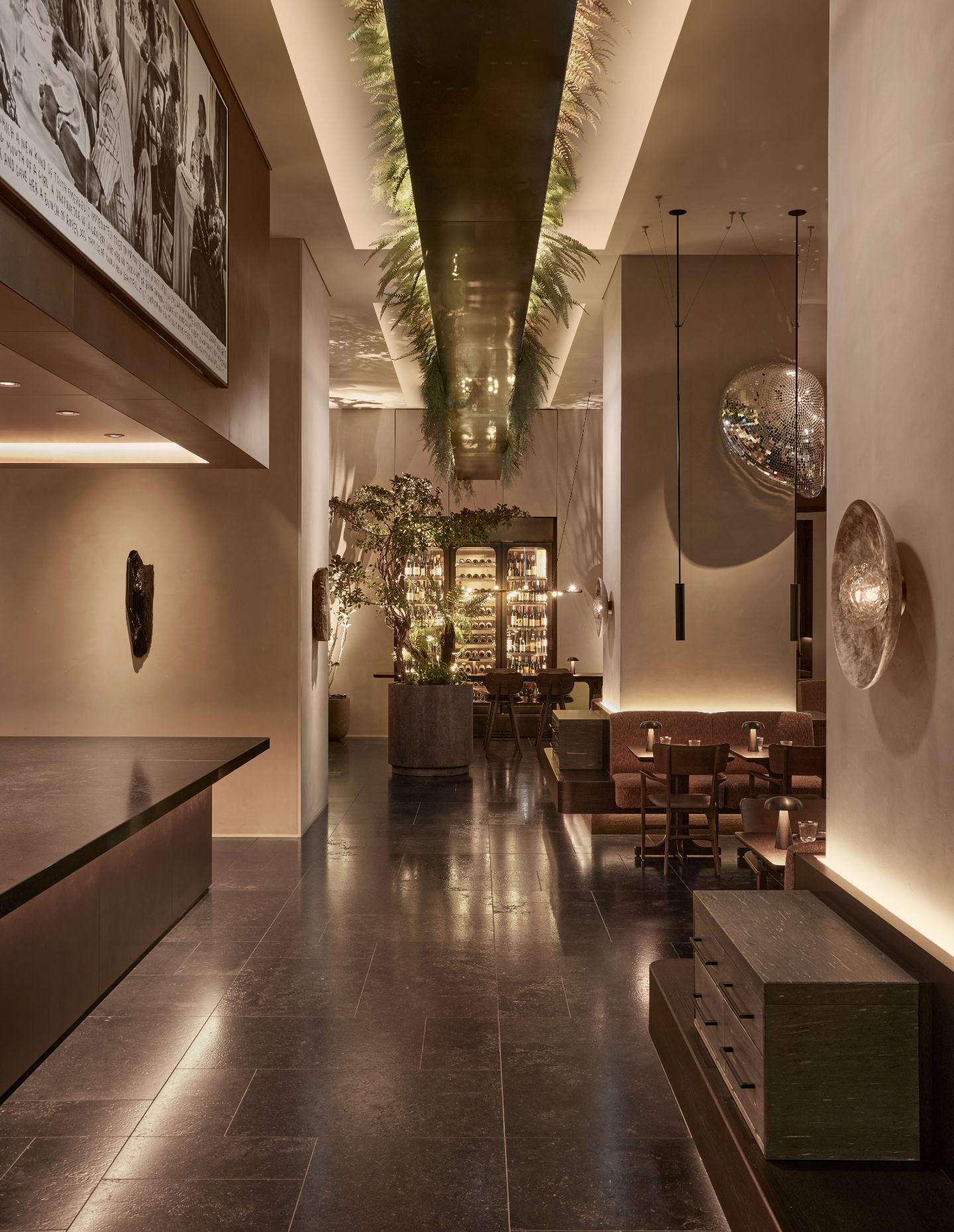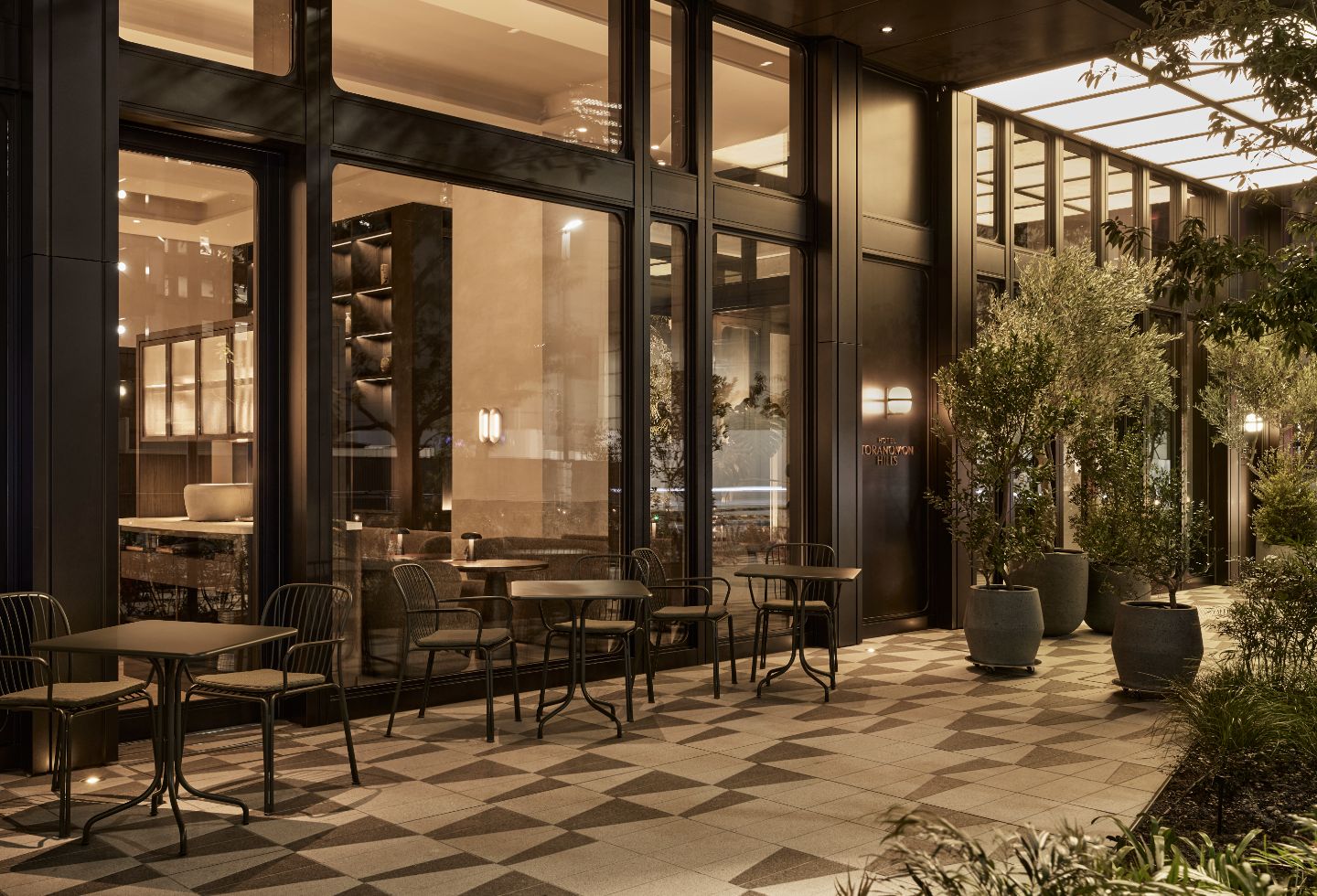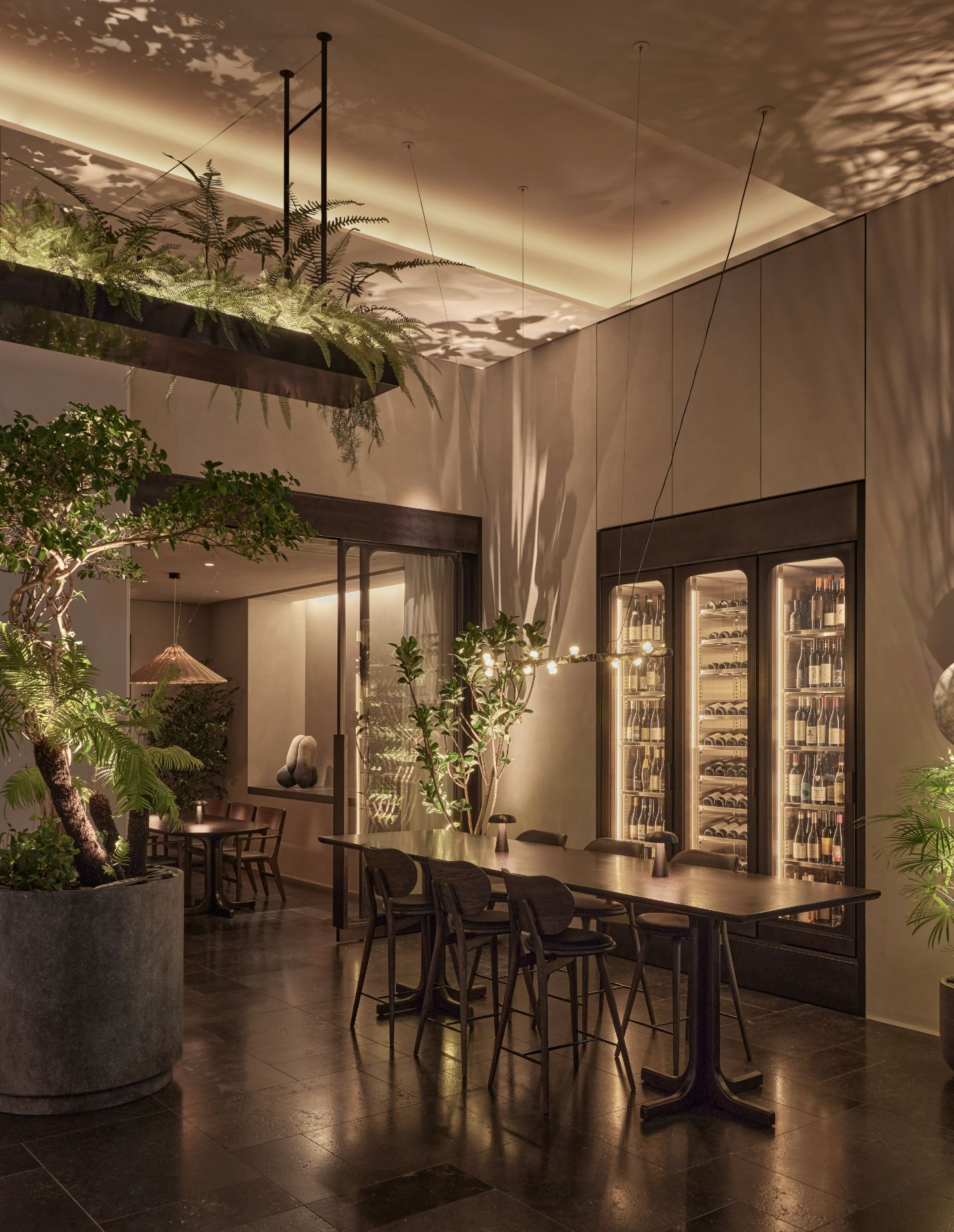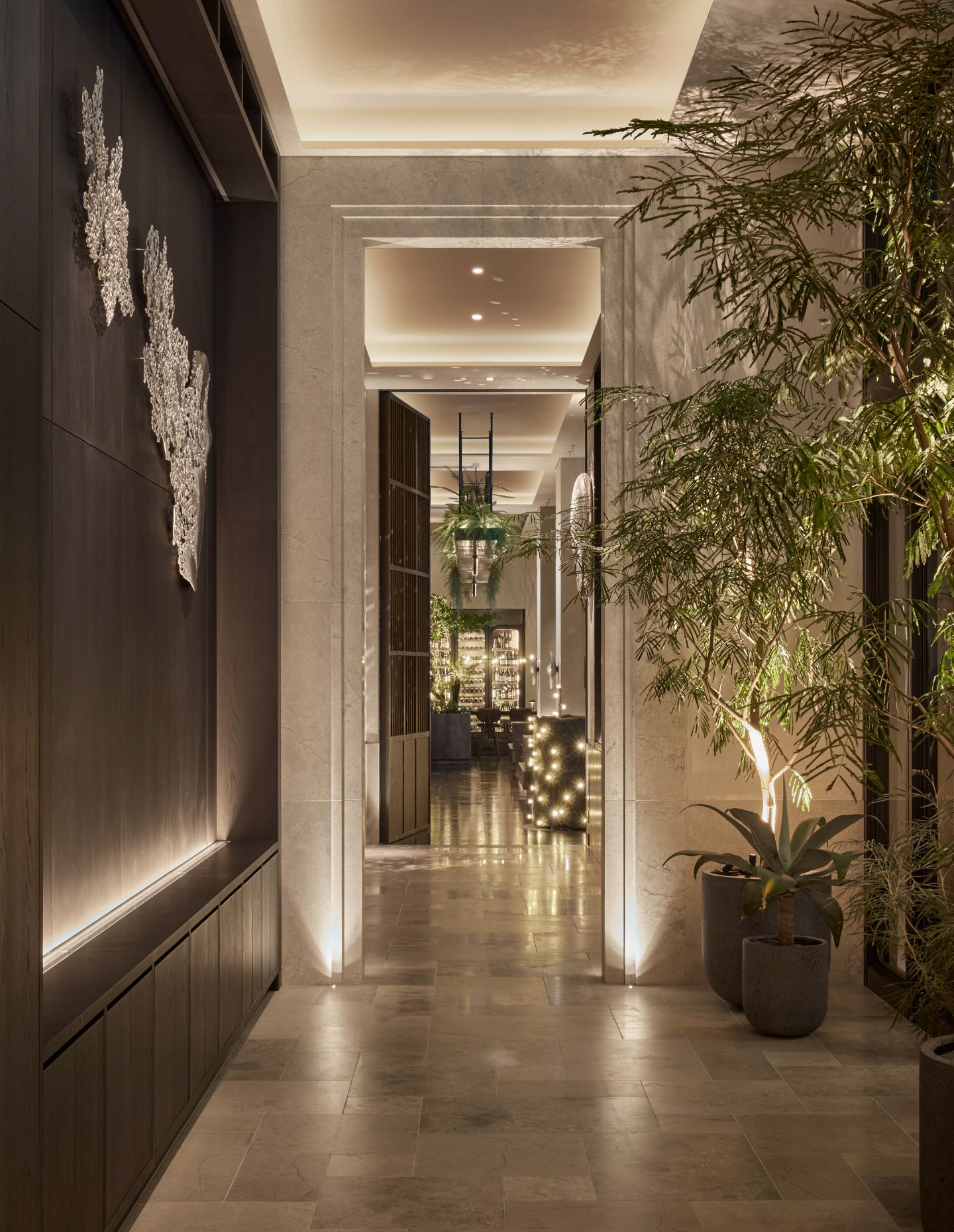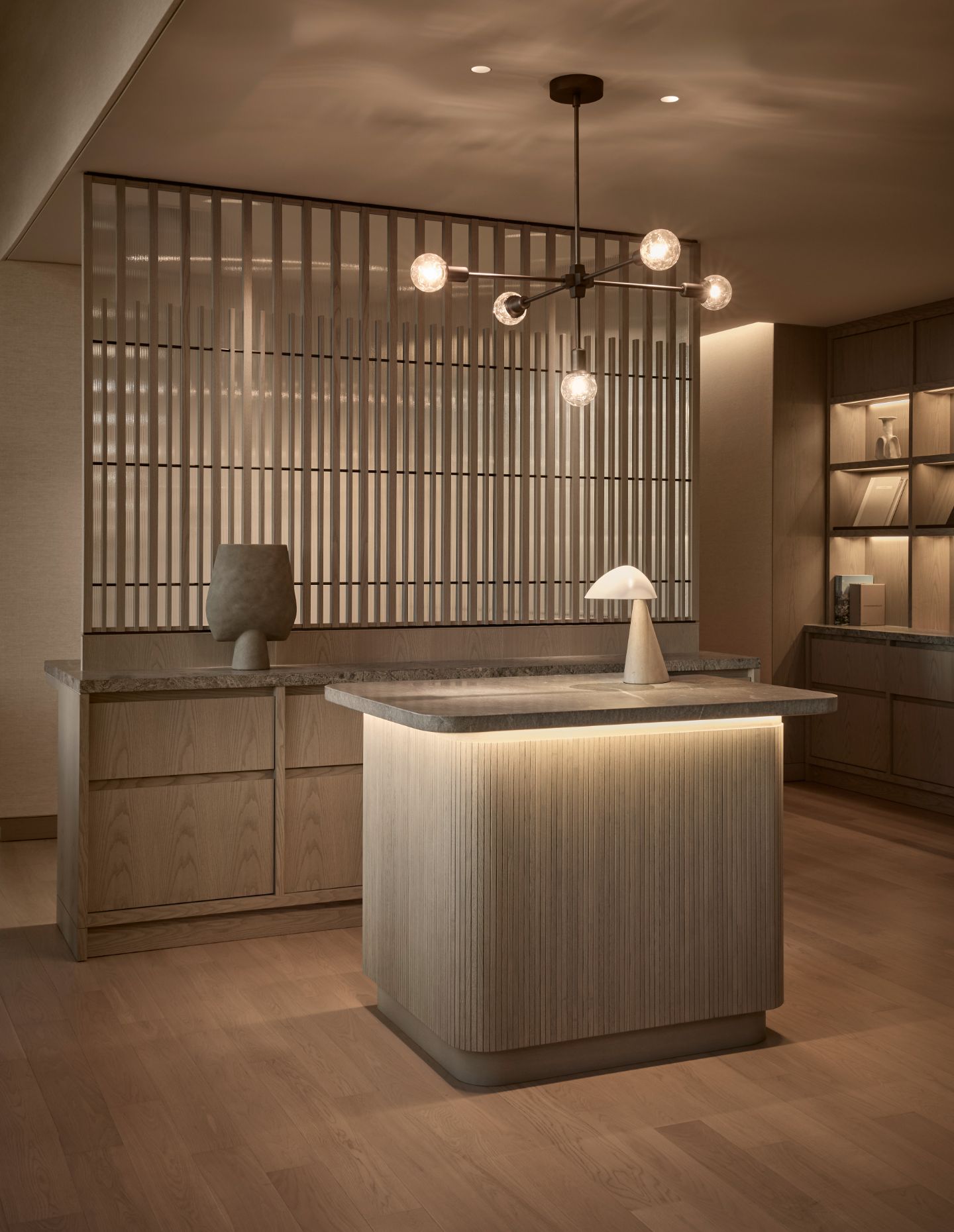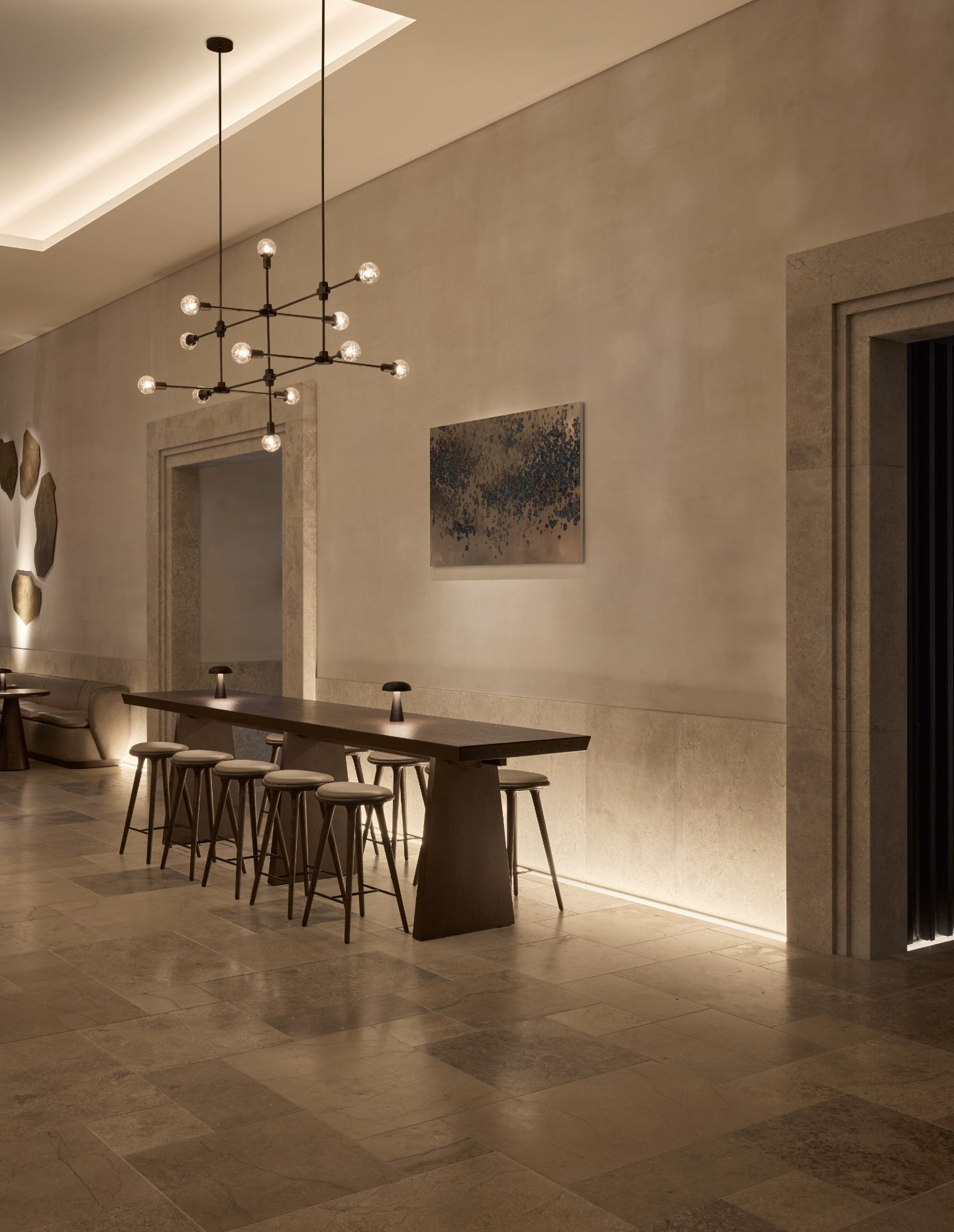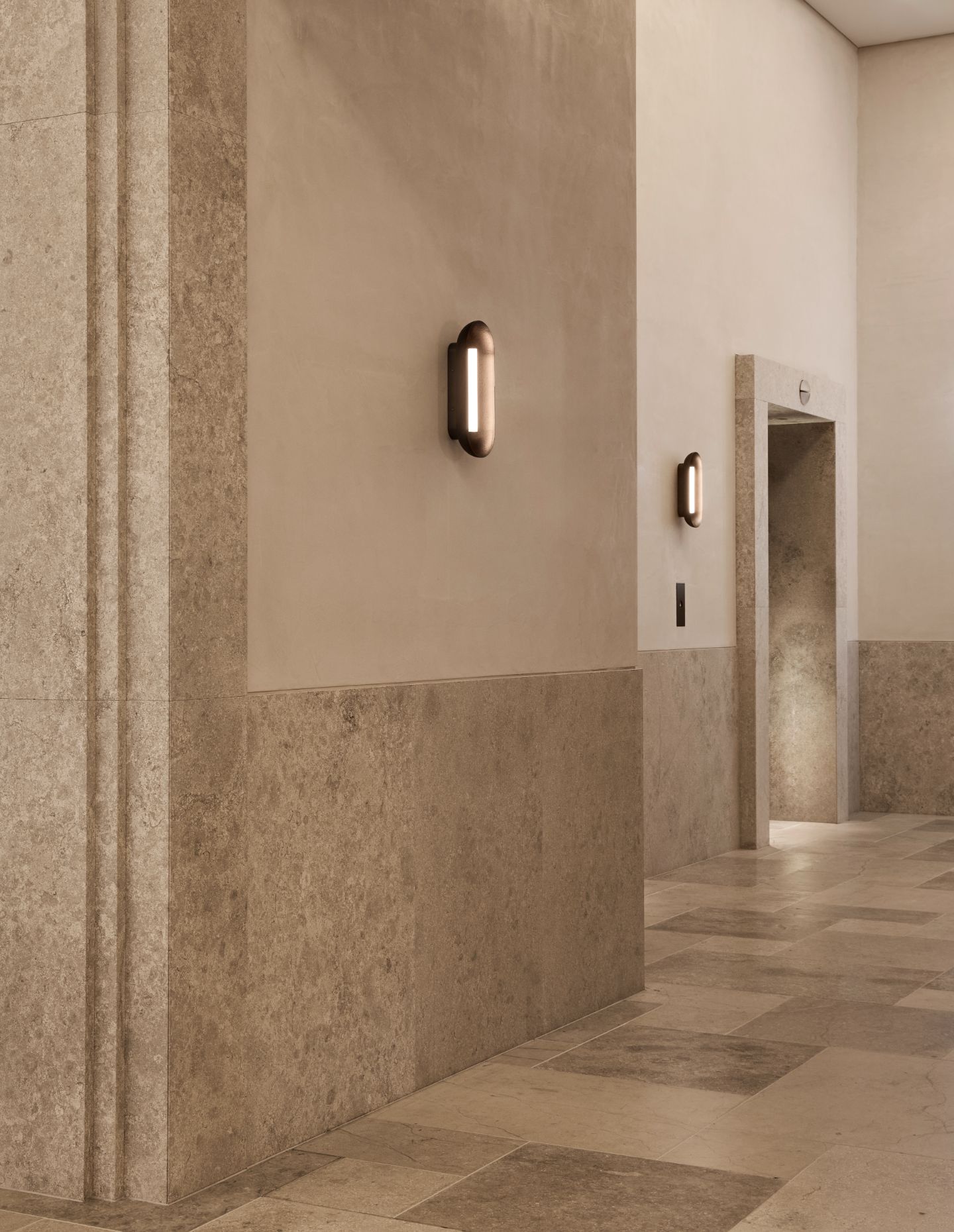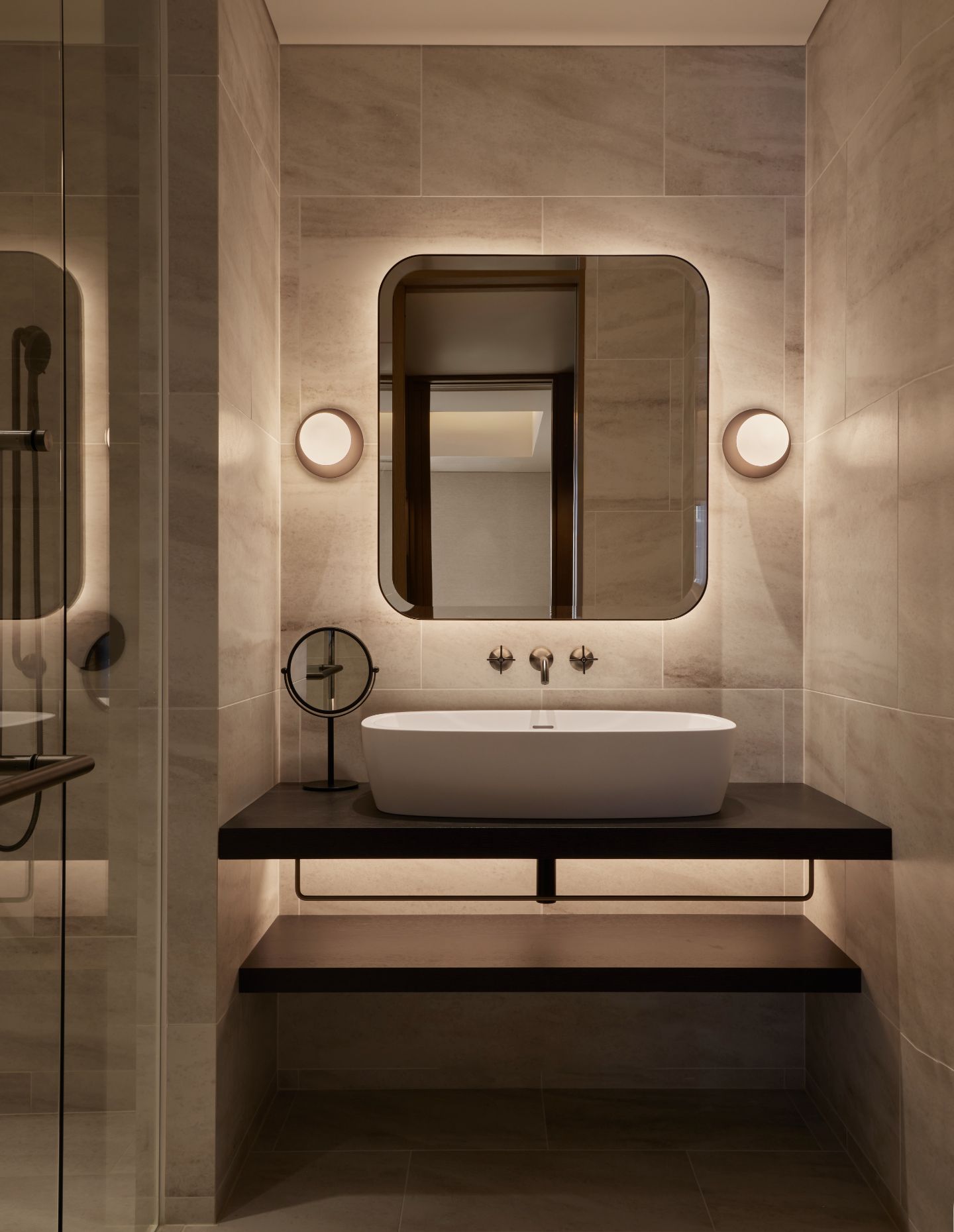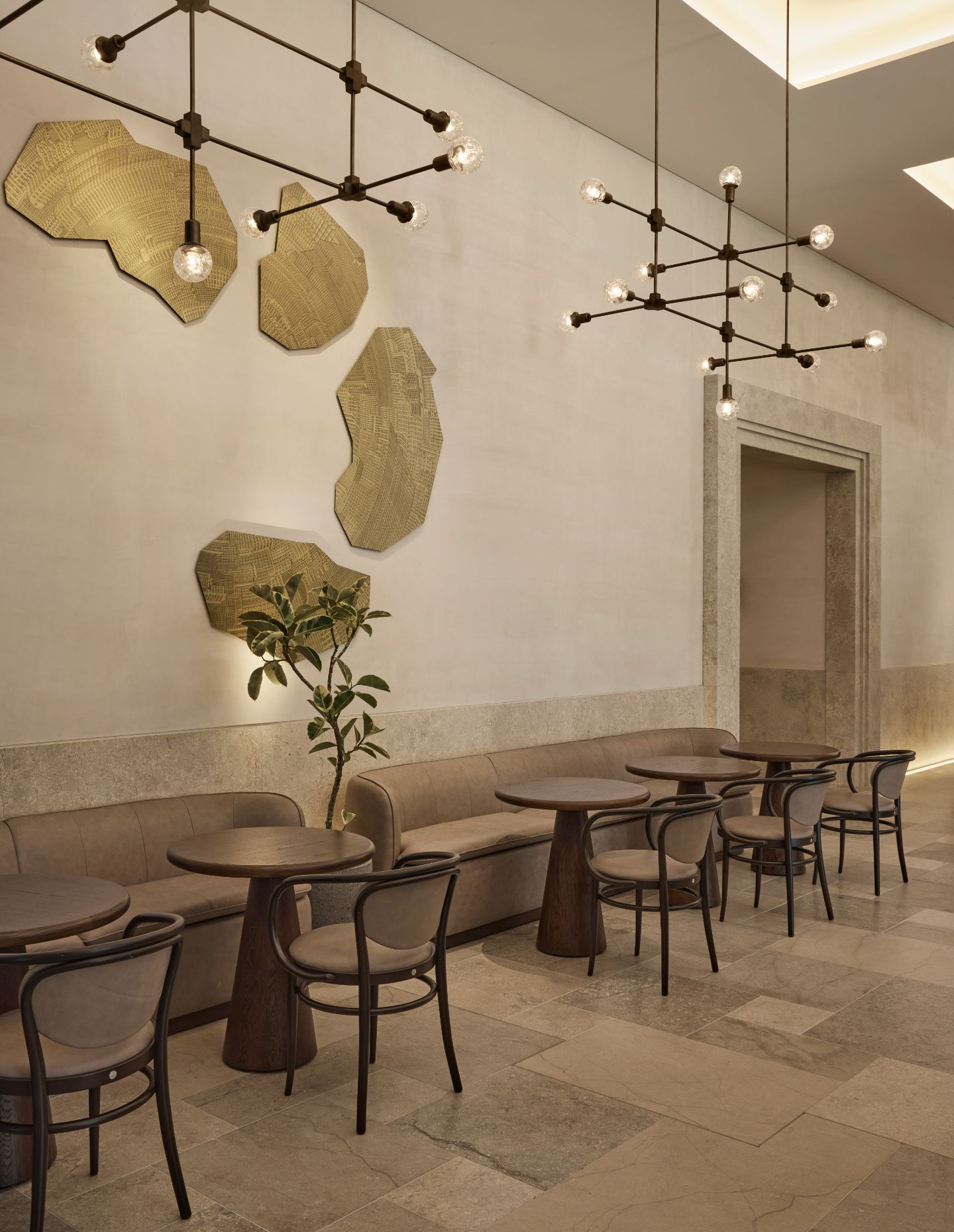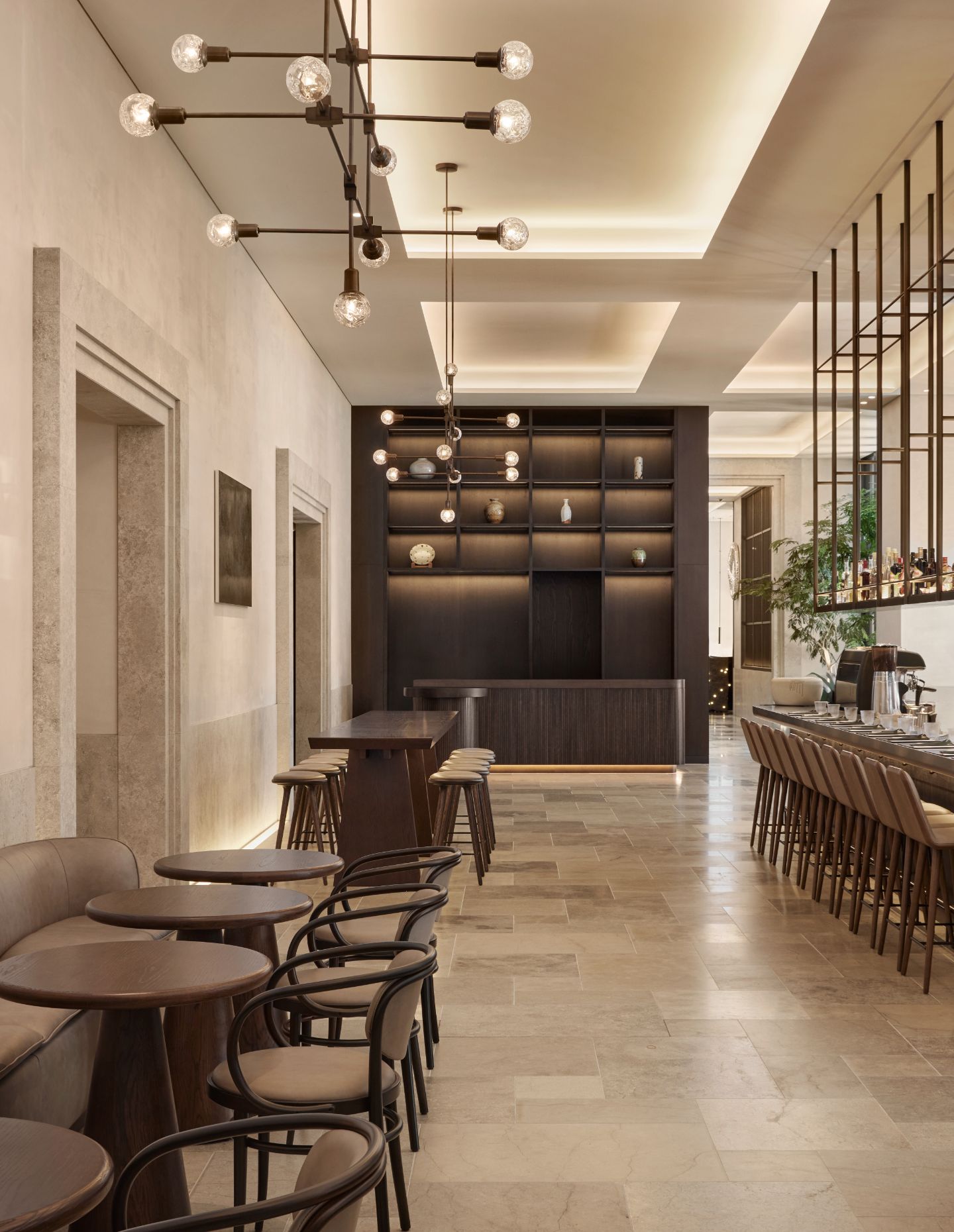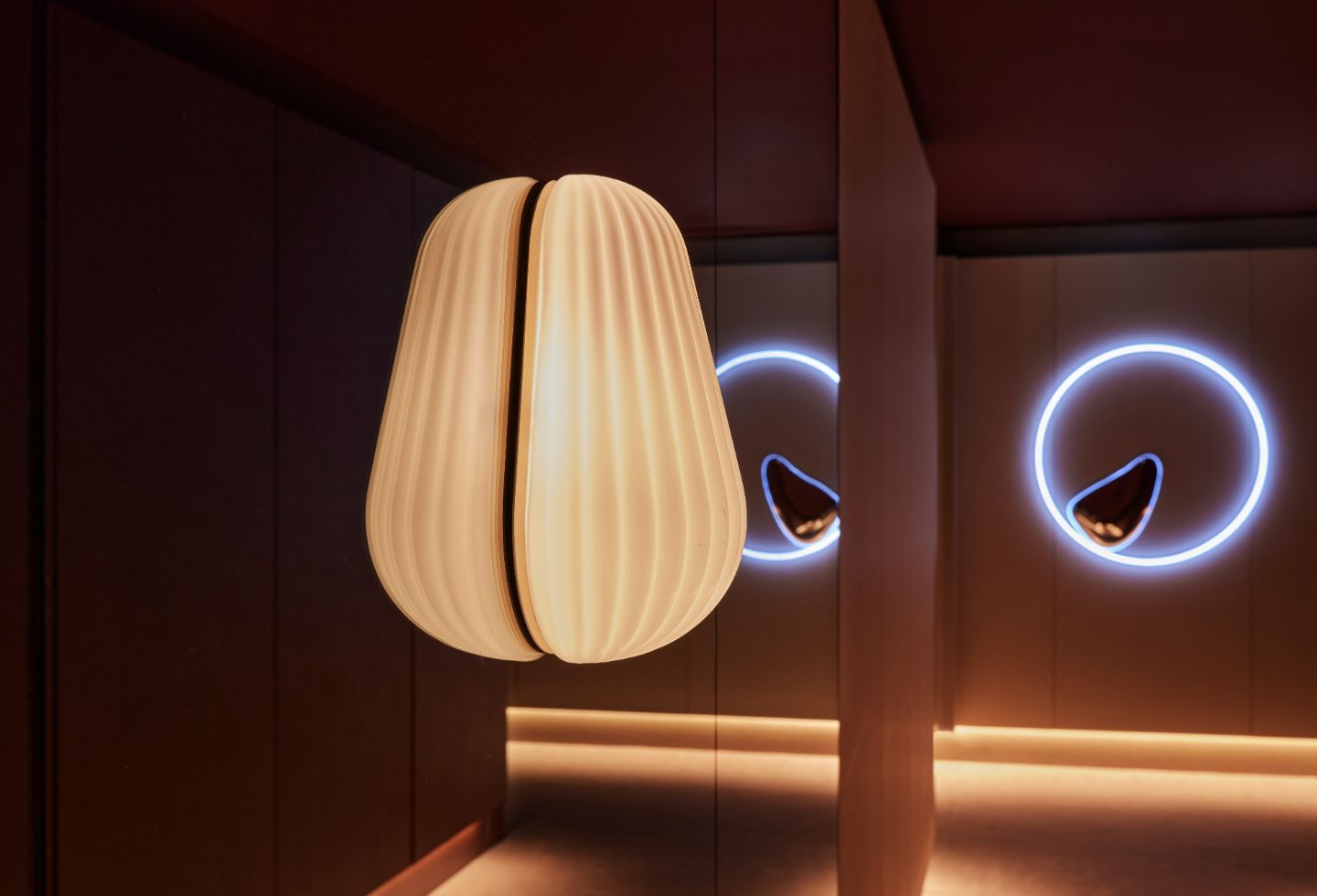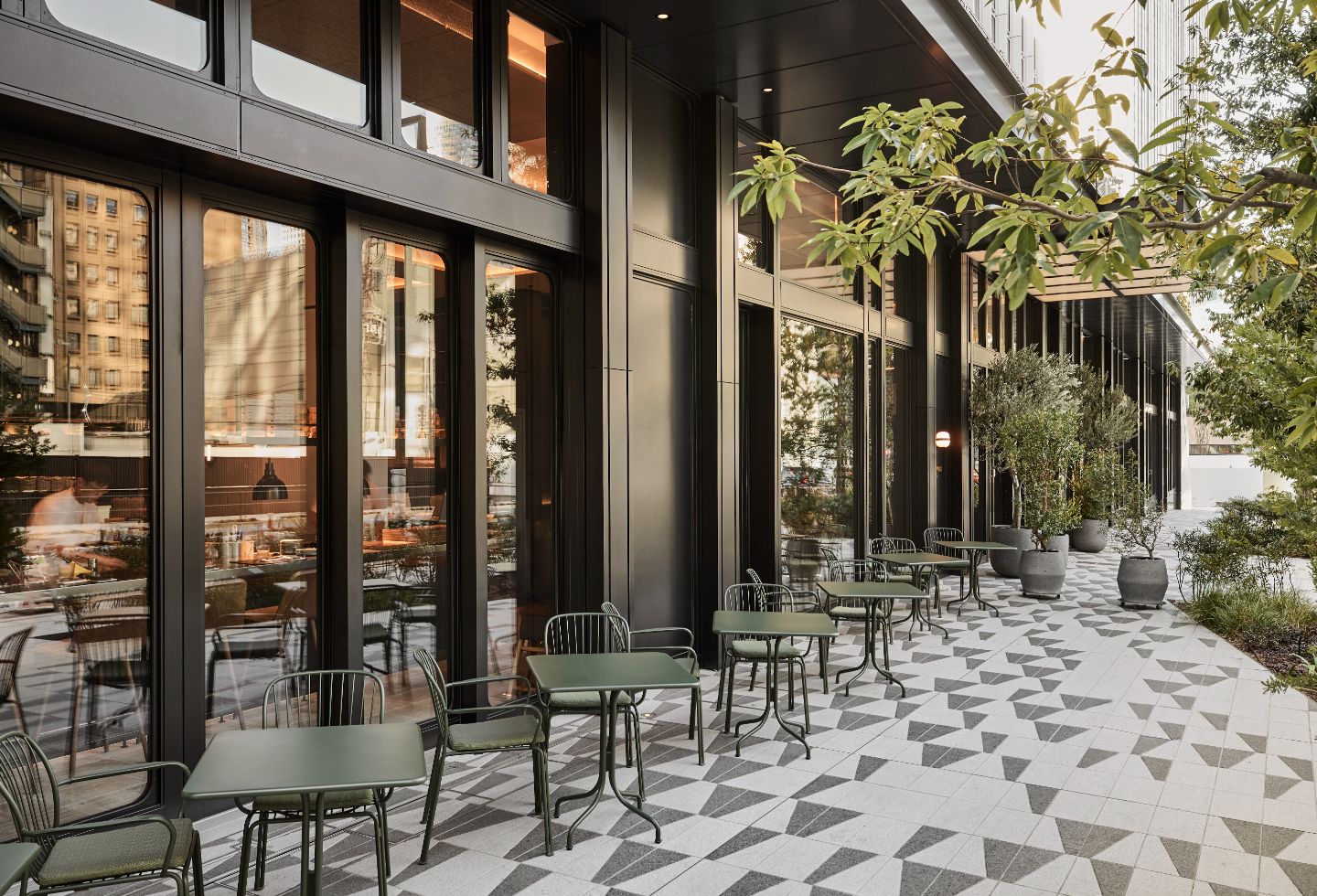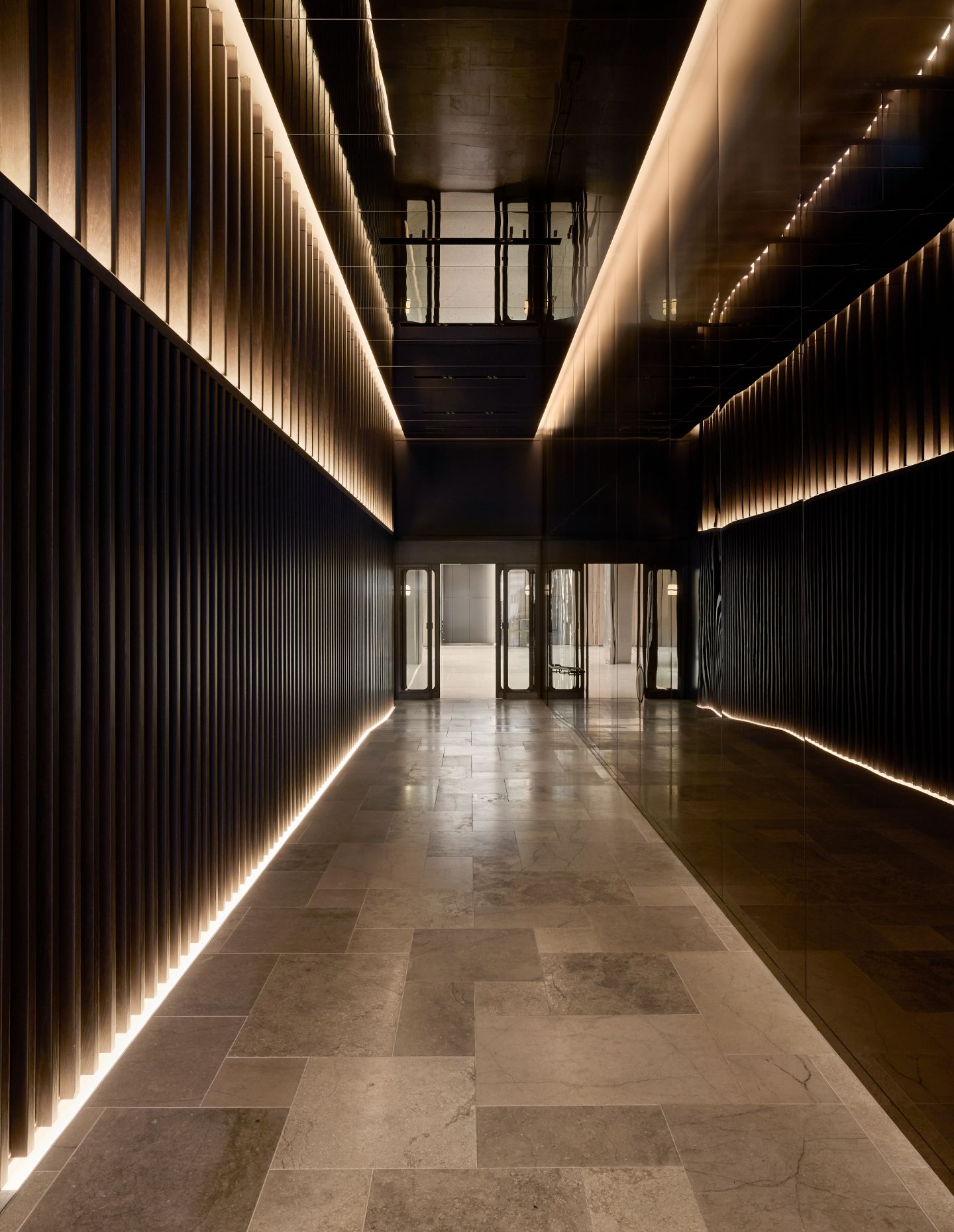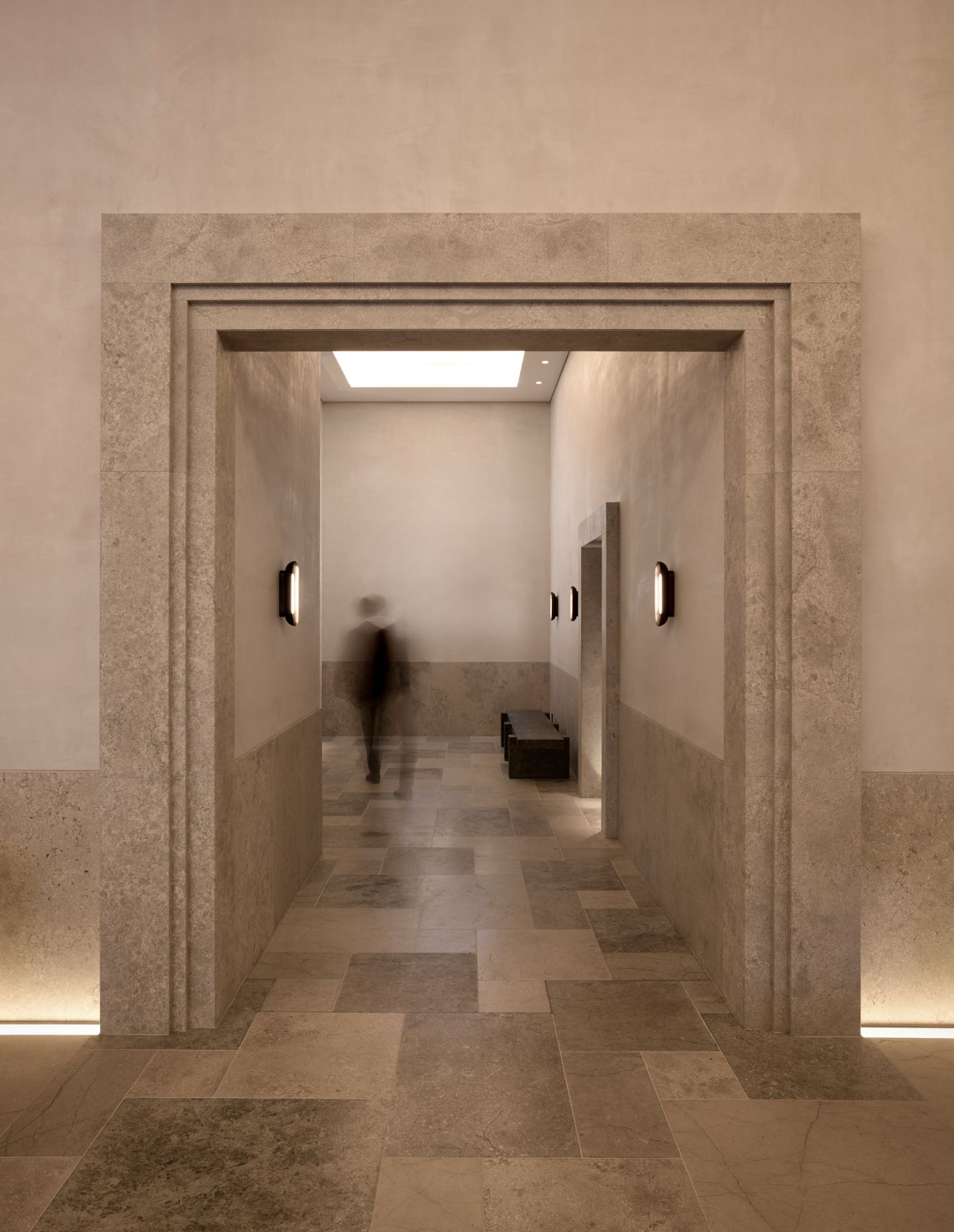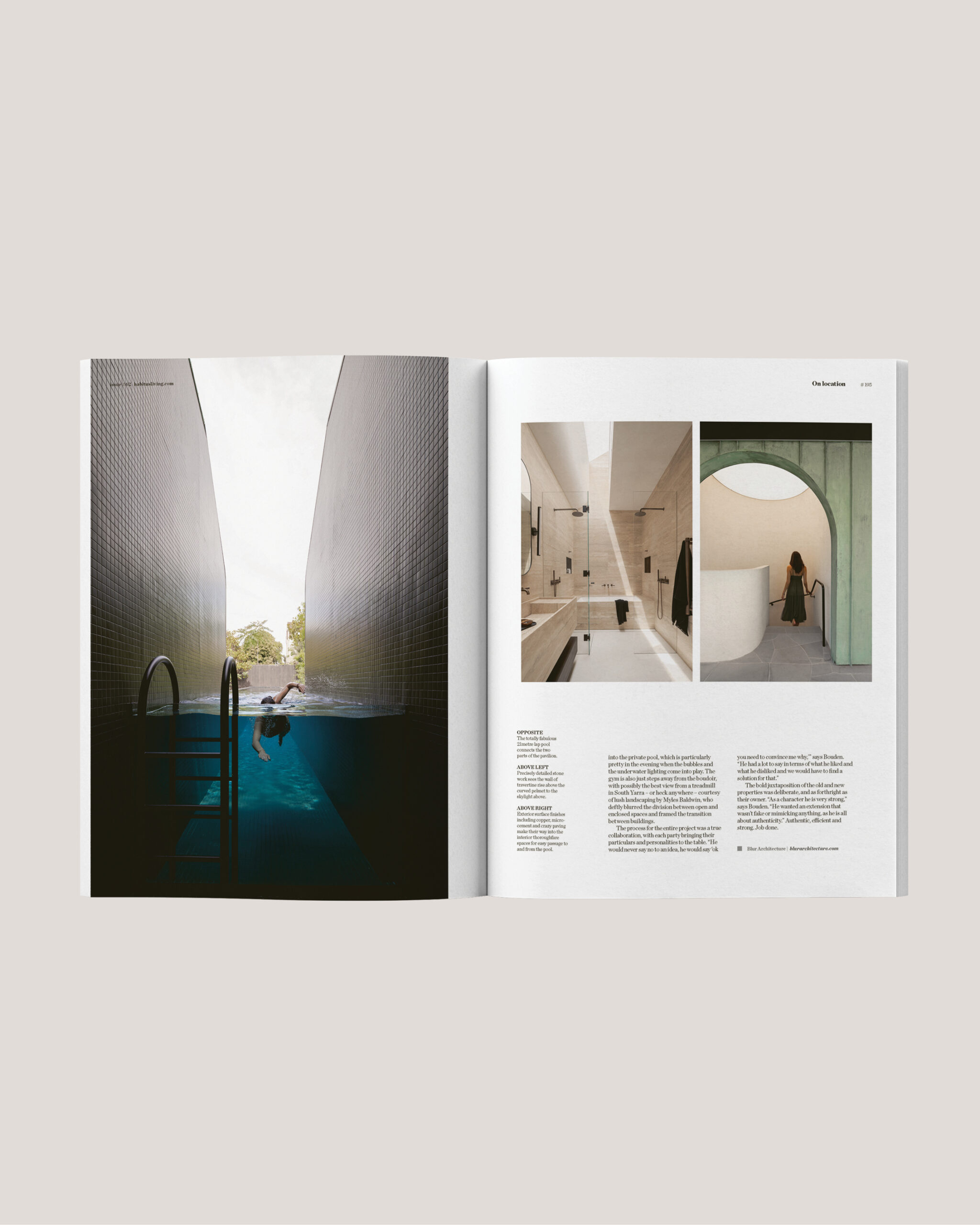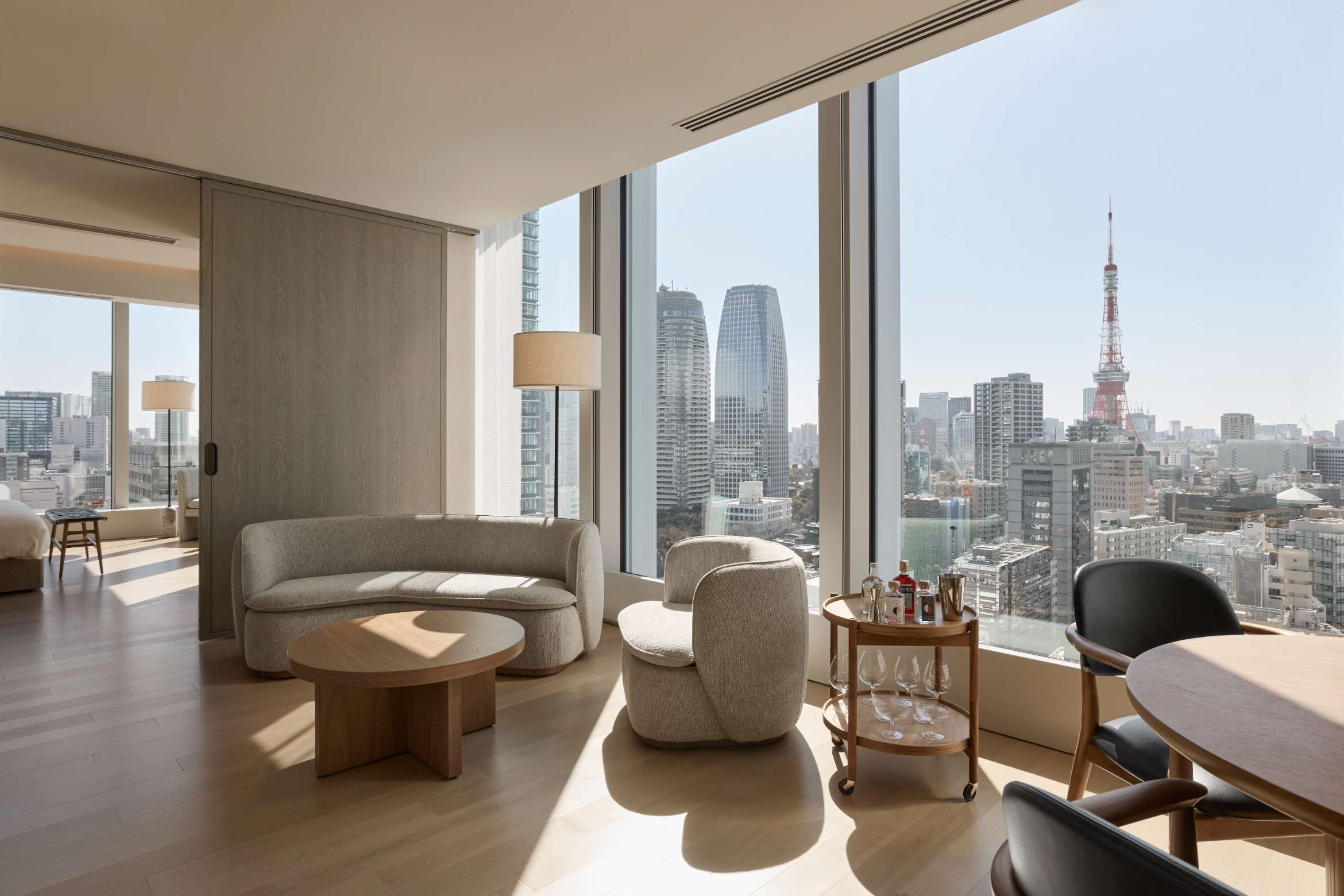Hotel Toranomon Hills, the latest storied hotel in Hyatt’s Unbound Collection, opened its doors in December 2023 and quickly established itself as a premier destination within Tokyo’s vibrant urban landscape. Nestled between the historic Imperial Palace and the Zojo-ji temple complex (which houses six Tokugawa shoguns), this luxurious hotel offers a unique vantage point and occupies the first and 11th to 14th floors of the ‘vertical city’ of Toranomon Hills Station Tower.
As one steps into one of its 205 rooms, it’s hard to move past the sweeping and prodigious views of Tokyo’s cityscape – with many rooms offering a striking vista of Tokyo Tower.
The hotel is a testament to the harmonious convergence of Scandinavian and Japanese design sensibilities. Danish studio Space Copenhagen, acclaimed for their ‘slow aesthetics’ design philosophy, has imbued the interiors with a softness and roundedness. It’s most pronounced in their choice of materiality and shapes, which stand in contrast to Tokyo’s jagged skyline. Celebrated for its emphasis on elegance and longevity, this design ethos manifests in the hotel’s minimalist design, which features muted earthy palettes and subtle textures. These serve to foster a sense of calm and respite in a sea of glass, metal and concrete.
Space Copenhagen incorporated a range of bespoke tables and sofas, while the principal dining chair is a custom design by Fredericia. Additional dining chairs in grey stained oak, as well as high stools, are from Mater, and &Tradition’s celebrated Como and Manhattan battery-powered lights are also featured.
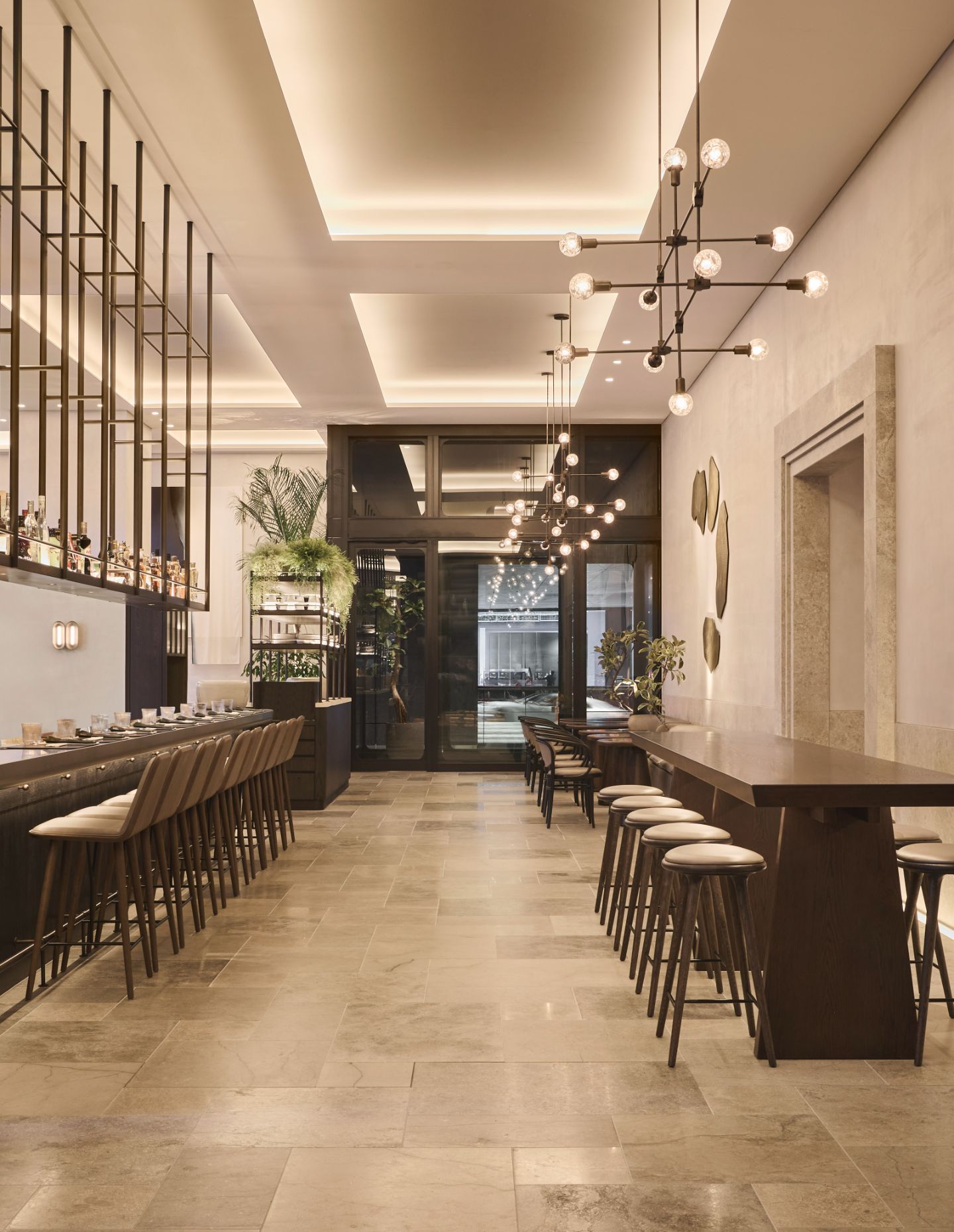
Meanwhile, the design language speaks to an egalitarian pursuit for every room regardless of its category, offering guests the same opportunity to share in a carefully crafted experience. On the 11th floor sits the Lounge, a retreat aimed at both the business- and leisure-minded which offers a space for contemplation, meetings and respite. Notably, it’s also available to guests even after check-out.
The room interiors make use of modular elements such as sliding doors, reminiscent of shoji screens in a ryokan, but also carefully curated design pieces which ensure that the spaces are as functional as they are luxurious.
The lobby of Hotel Toranomon Hills serves as the nucleus, connecting three distinct access points: the Toranomon Hills subway station, the street level and the car park. This central hub is not just a point of arrival but a space where guests can experience the pulse of the hotel’s lively ambiance. Central to this space is Le Pristine café, an all-day dining venue serving up not only food but also beats curated personally by Michelin-starred chef, Sergio Herman. The Zeeland-born chef is also the founder of Le Pristine Tokyo on the same floor and Le Pristine in Antwerp, all designed by Space Copenhagen.
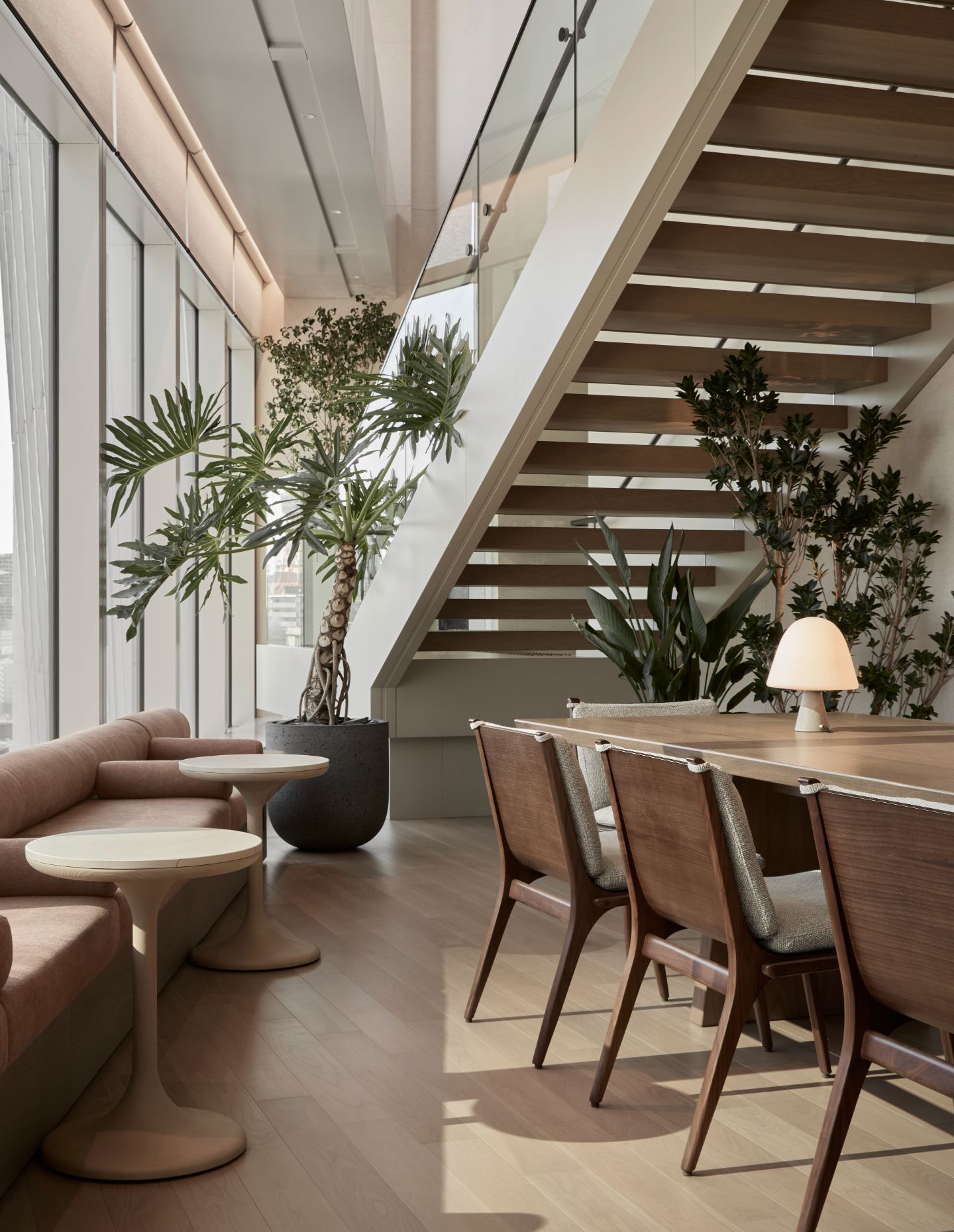
Le Pristine Tokyo provides an immersive street-level perspective of the Toranomon Hills district, and is crafted as a synthesis of design, art, fashion and music. It features striking art installations and bespoke furniture by notable artists such as Maarten Baas and the Dutch design collective, Rotganzen. The restaurant’s mission is simple: it invites diners to experience casual fine dining and enjoy a cuisine multilayered in its inspiration.
Herman’s personal touch is felt mostly here, at the dining table, where he orchestrates things according to ‘New Italian’ cuisine – as well as his own collection of life experiences. The chef invites diners not to sample Japanese cuisine but to savour Japanese ingredients woven into Italian traditions, all while honouring his Dutch heritage. It’s a singular fusion best understood as being its own thing, and it has Herman’s stamp all over it.
In its entirety, Hotel Toranomon Hills stands as a significant addition to Tokyo’s hospitality scene. With its integration of luxurious design, functional spaces and casual fine dining, it seeks to embody a commitment to both business and leisure travel. Its blend of Scandinavian and Japanese design principles, coupled with Herman’s autobiographical offerings at Le Pristine Tokyo, ensures that every guest experiences a contemplative and memorable stay in the heart of one of the world’s most dynamic cities.
